The most environmentally friendly country in the world
 Bashny.Net
Bashny.Net
"Index of environmental performance" (Environmental Performance Index) or EPI is a method of quantifying and numerically the comparative analysis of the environmental performance of green policy. This index was developed from the pilot environmental performance index (Pilot Environmental Performance Index), first published in 2002, and is designed to Supplement the environmental targets set out in the International development of humanity of the United Nations (U. N. Millennium Development Goals).
In 2010, "Center for environmental law and policy" (Center for Environmental Law & Policy) at Yale University together with the "Centre international information network on Earth Sciences" (Center for International Earth Science Information Network) Columbia University established EPI for a good overview of the ranking of the most successful countries in achieving the "Millennium development Goals 2015". To achieve these goals, we appeal to countries to reduce poverty and dangerous diseases. In addition, it is equally important for countries around the world, significant development of the sustainability of the ecosystem.
EPI is a method of statistical enumeration and initialization of environmental indicators of the country in accordance with the green policy. EPI also relies on a system of assessment based on two factors: sustainability and longevity of the ecosystem (Ecosystem Vitality). The longevity of the ecosystem consists of assessments, including the increase of natural resources, excellent environmental conditions and biodiversity. In addition, the environmental sanitation (Environmental Health) reflects complex issues, such as unsanitary water sources, air pollution and disease.
Here are the top 5 countries by the end of 2012 that received the highest rating EPI. They are the most eco-friendly countries in the world today.
Switzerland
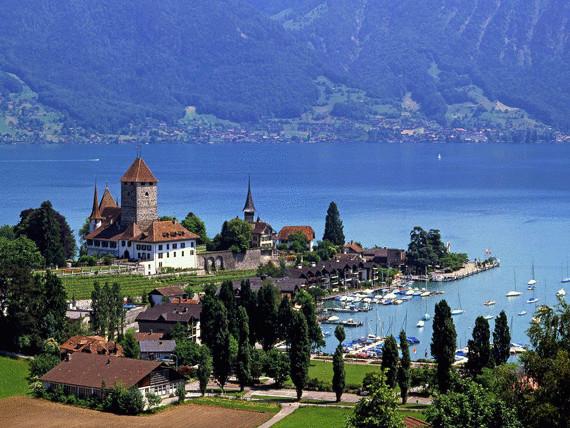
Switzerland is the most beautiful and ecologically stable country in the world. Breathtaking nature and scenic views of the country contributes to its thriving success. However, not all local residents are the followers of green politics. To motivate people to ecological way of life, the Swiss government decided to impose fine for improper waste disposal. There is a whole system of sorting and handling of waste, and a rigid system of penalties.
Latvia
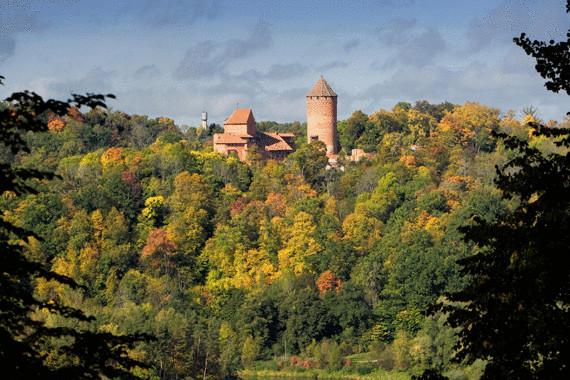
With the assessment of the environmental longevity 70,37, Latvia takes the second place in the list of the greenest countries in the world. The untouched nature of Latvia demonstrates the concern of local residents about clean and healthy environment, and the amount of natural resources per capita exceeds the European average.
Norway
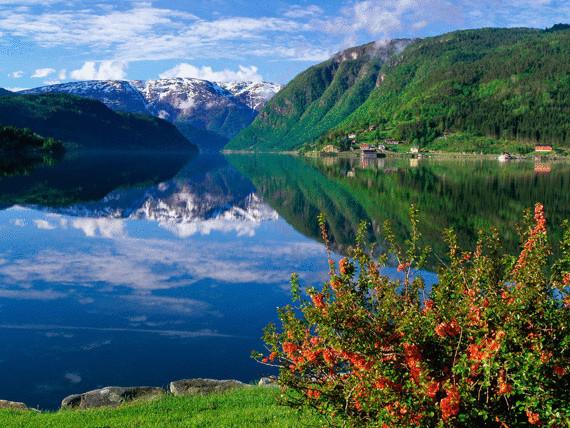
The third country in the list, Norway, is experiencing the effects of global warming, and this is the main reason why her people are trying all possible ways to protect the country from the disastrous effects of the changes. The Norwegian government together with the population make every effort to become carbon-neutral country by reducing emissions and restoring the balance of carbon dioxide in the atmosphere.
The stunning scenery can be found throughout Norway. National Geographic has made the Norwegian fjords in the list of world attractions.
Luxembourg
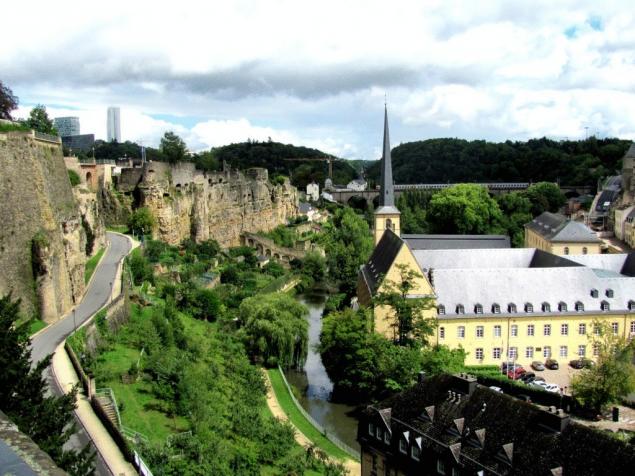
Luxembourg is the proud owner of "Centre for environmental technologies" (CRTE), which is engaged in eco-design, renewable energy, life cycle analysis and eco-construction.
Costa Rica
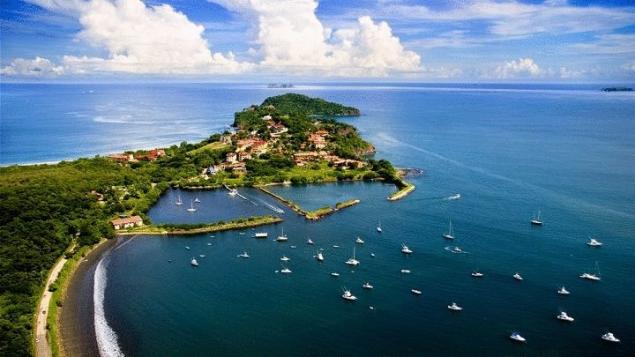
The government of Costa Rica is following in the footsteps of Iceland, taking her as an example search and the use of renewable sources of energy.
The nation intends to make his country carbon-neutral by 2021.
Costa Rica for many years conducted the felling of forests for obtaining of sufficient areas for agriculture, but the country is now focused on restoration of forests, planning to fly more than 5 million saplings for 5 years.
Source: /users/104
In 2010, "Center for environmental law and policy" (Center for Environmental Law & Policy) at Yale University together with the "Centre international information network on Earth Sciences" (Center for International Earth Science Information Network) Columbia University established EPI for a good overview of the ranking of the most successful countries in achieving the "Millennium development Goals 2015". To achieve these goals, we appeal to countries to reduce poverty and dangerous diseases. In addition, it is equally important for countries around the world, significant development of the sustainability of the ecosystem.
EPI is a method of statistical enumeration and initialization of environmental indicators of the country in accordance with the green policy. EPI also relies on a system of assessment based on two factors: sustainability and longevity of the ecosystem (Ecosystem Vitality). The longevity of the ecosystem consists of assessments, including the increase of natural resources, excellent environmental conditions and biodiversity. In addition, the environmental sanitation (Environmental Health) reflects complex issues, such as unsanitary water sources, air pollution and disease.
Here are the top 5 countries by the end of 2012 that received the highest rating EPI. They are the most eco-friendly countries in the world today.
Switzerland

Switzerland is the most beautiful and ecologically stable country in the world. Breathtaking nature and scenic views of the country contributes to its thriving success. However, not all local residents are the followers of green politics. To motivate people to ecological way of life, the Swiss government decided to impose fine for improper waste disposal. There is a whole system of sorting and handling of waste, and a rigid system of penalties.
Latvia

With the assessment of the environmental longevity 70,37, Latvia takes the second place in the list of the greenest countries in the world. The untouched nature of Latvia demonstrates the concern of local residents about clean and healthy environment, and the amount of natural resources per capita exceeds the European average.
Norway

The third country in the list, Norway, is experiencing the effects of global warming, and this is the main reason why her people are trying all possible ways to protect the country from the disastrous effects of the changes. The Norwegian government together with the population make every effort to become carbon-neutral country by reducing emissions and restoring the balance of carbon dioxide in the atmosphere.
The stunning scenery can be found throughout Norway. National Geographic has made the Norwegian fjords in the list of world attractions.
Luxembourg

Luxembourg is the proud owner of "Centre for environmental technologies" (CRTE), which is engaged in eco-design, renewable energy, life cycle analysis and eco-construction.
Costa Rica

The government of Costa Rica is following in the footsteps of Iceland, taking her as an example search and the use of renewable sources of energy.
The nation intends to make his country carbon-neutral by 2021.
Costa Rica for many years conducted the felling of forests for obtaining of sufficient areas for agriculture, but the country is now focused on restoration of forests, planning to fly more than 5 million saplings for 5 years.
Source: /users/104
Tags
ecology and the world
Norway
Switzerland
sustainability
Luxembourg
natural resources
Latvia
garbage disposal
eco-friendly countries in the world
epi
green policies
Costa Rica
See also
The world's largest flower Park
The highest hotel in the world
BBK Vivo X1 — the thinnest smartphone in the world
The world's largest tent Khan Tent
The world's longest art gallery
Countries rich in natural resources
The most depressing country in the world - Afghanistan
The most depressing country in the world - it's France
The most "fat" country in the world - it is the Republic of Kiribati
We live in the coldest country in the world. But do you know how cold it?

















